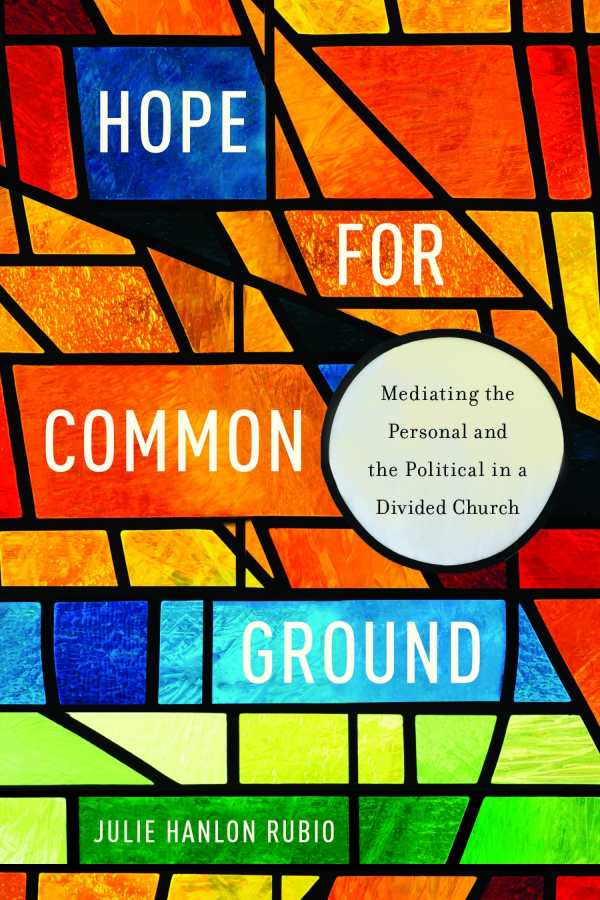Hope for Common Ground
Mediating the Personal and the Political in a Divided Church
On hot-button issues, Rubio focuses on “the space between” where Catholics can find common ground.
American politics can be a challenge for Catholics, as its two major political parties agree with Vatican positions on certain issues and disagree with it on others. Such splits extend to Catholic communities. In Hope for Common Ground, Julie Hanlon Rubio makes suggestions to help Catholics on both sides of certain issues work together.
The book features chapters on issues including abortion, end-of-life care, poverty, the definition of marriage, and the need to act locally while avoiding “cooperation with evil.” The book takes the view that the church is correct in what it considers “evil”; this is a text specifically aimed at a religious audience.
The book does a nice job of laying out the different facets of how the church views the “evil” positions on each of the topics addressed. For example, the idea of buying sweatshop-made clothes is defined as evil because the buyer benefits from practices that keep people in poverty. Rubio explains, however, that it matters whether the individual’s means do not allow them to make the right choice. She similarly explains that it matters whether a person supports evil intentionally or as a side effect of a larger choice. In the context of an election, she draws a distinction between voting for a pro-choice candidate because of that position and voting for him or her because of other positions, where their abortion views would be a side effect.
On these and other hot-button issues, Rubio focuses on “the space between” where Catholics can find common ground. For example, her chapter on abortion explains a split among Catholics, with more liberal Catholics perceiving poverty and a lack of family stability as factors for why abortion occurs, and more conservative Catholics blaming premarital sex and social mores. Rubio describes the limits of current approaches—such as contraception and abstinence education—and instead proposes options like more community support for single mothers and increased promotion of adoption.
Other case-study chapters take a similar approach to issues, making the book a solution-focused work. There isn’t much here for a non-Catholic audience, but Hope for Common Ground could help religious readers find solutions in the spaces between politics and religion.
Reviewed by
Jeff Fleischer
Disclosure: This article is not an endorsement, but a review. The publisher of this book provided free copies of the book to have their book reviewed by a professional reviewer. No fee was paid by the publisher for this review. Foreword Reviews only recommends books that we love. Foreword Magazine, Inc. is disclosing this in accordance with the Federal Trade Commission’s 16 CFR, Part 255.

